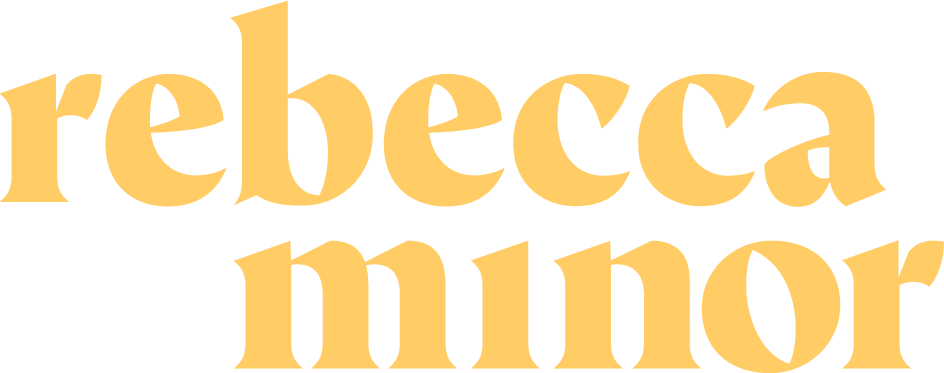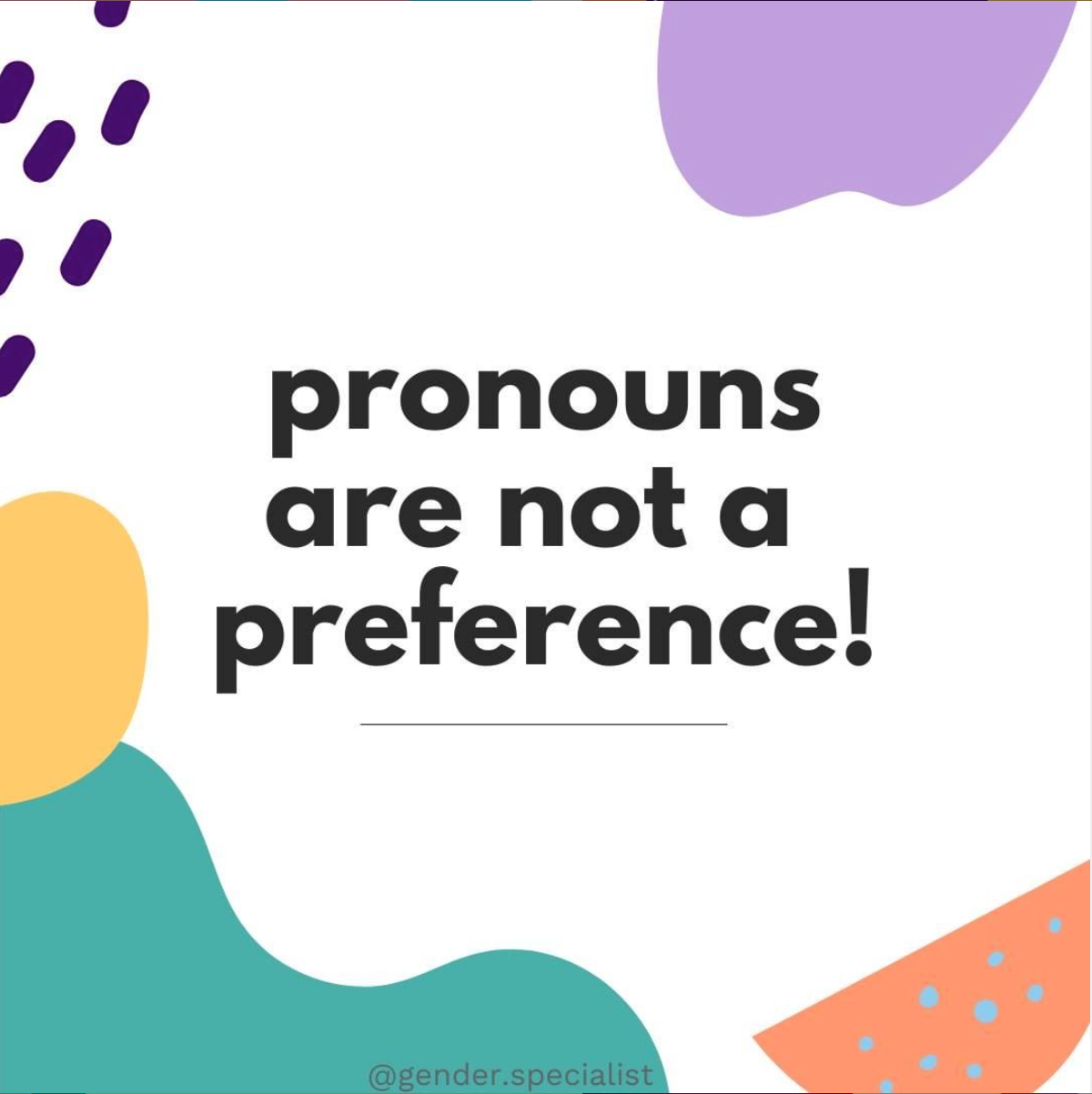Pronouns Are Not a Preference.
A pronoun is a word that refers to either the people talking (I or you) or someone or something that is being talked about (like she, it, them, and this). Gender pronouns (she/they/he/ze etc.) specifically refer to people that you are talking about.
Think about it: are your pronouns a “preference”?
For many years, the language of “preferred pronoun” was considered the ‘right’ thing to say. I have met so many well-meaning folks who don’t know that there’s updated language around pronoun use.
Times have changed, so our language must change with it! People’s pronouns aren’t simply a preference and need to be respected.
Pronouns are pronouns, period.
Respecting everyone’s pronouns matters but it’s especially important for youth. Research supports that affirming LGBTQ+ youth’s gender by using pronouns that align with their gender identity has been shown to significantly improve mental health outcomes. In fact, studies found that trans and gender non-conforming youth who reported having their pronouns respected by all or most of the people in the lives attempted suicide at half the rate of those who did not have their pronouns respected (The Trevor Project, 2020).
The singular “they”
Let the contention begin! So much has been written about the use of the pronoun that I will not attempt to repeat it here. Just know that there has been consistent use of they as a singular pronoun since the late 1300s, so it’s not new! Merriam-Webster updated their definition to encompass the singular gender-neutral “they” and wrote, “the development of singular they mirrors the development of the singular you from the plural you, yet we don’t complain that singular you is ungrammatical; and that regardless of what detractors say, nearly everyone uses the singular they in casual conversation and often in formal writing.”
How to use multiple pronouns:
You may have seen this in email signatures or know people who use “she/they” or “he/they” pronouns. I’ve been getting lots of questions from cisgender folks lately about how to refer to someone who uses more than one set of pronouns. Short answer: try to use both or all the pronouns they use! Best practice is always to ask the person!
The pronouns don’t have to both be in the same sentence, but acknowledging both in a conversation is usually well received. If you end up sticking with one you haven’t failed, but aim for both next time to be most affirming!
Remember, if you use the wrong pronouns, quickly apologize and move on.
I believe cisgender folks have a responsibility to normalize sharing pronouns.
Even if you identify with the pronouns assigned to you at birth, make an effort to share them when you enter new spaces.
Utilize your privilege! If everyone begins to take this step, it will become more and more natural for everyone to do so.
Let’s do this emotional labor for the trans and gender expansive folks in our lives!
Want to learn more?
Want to learn more? Check out the Glossary of Gender and Sexuality terms by clicking below:



